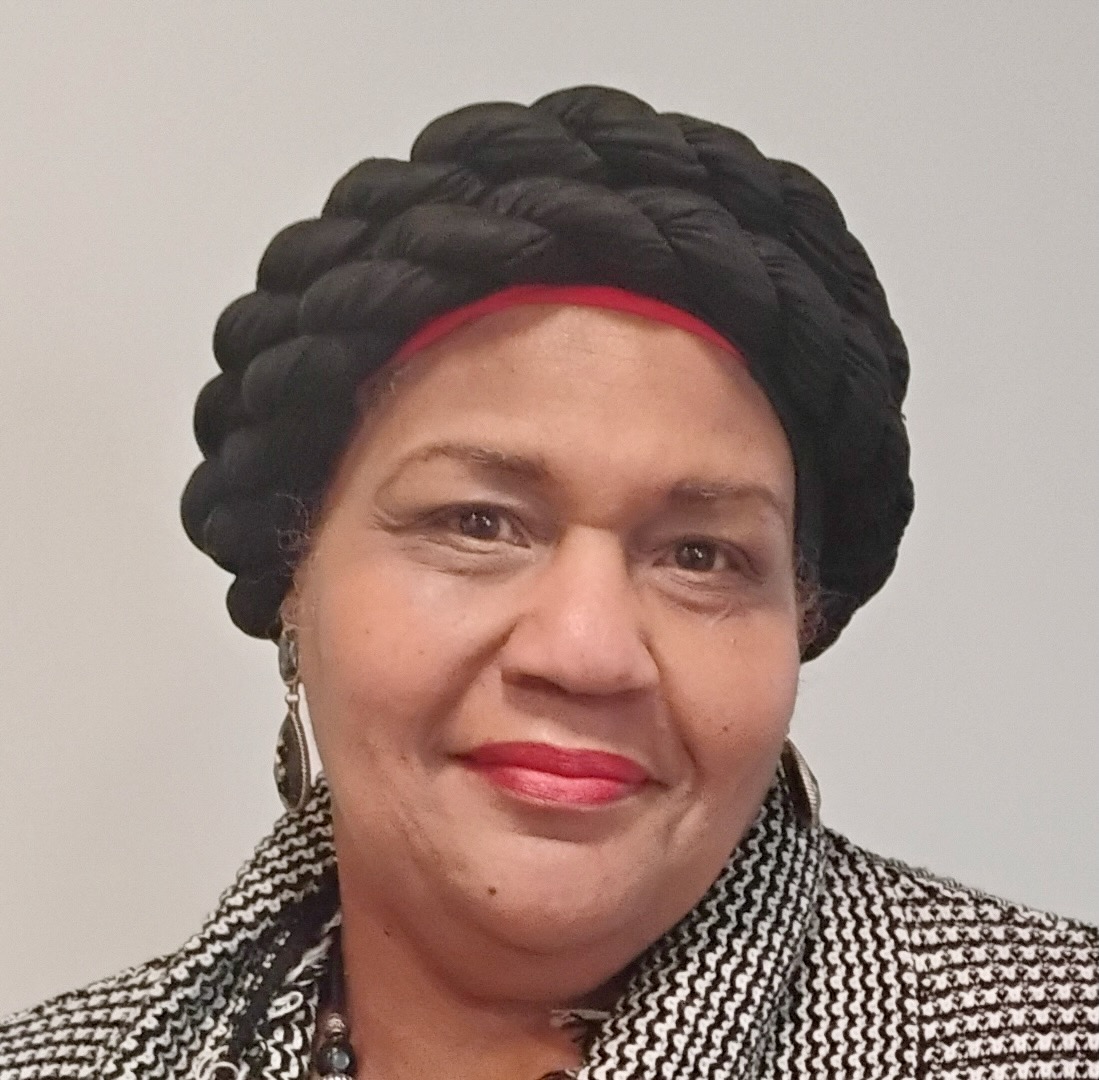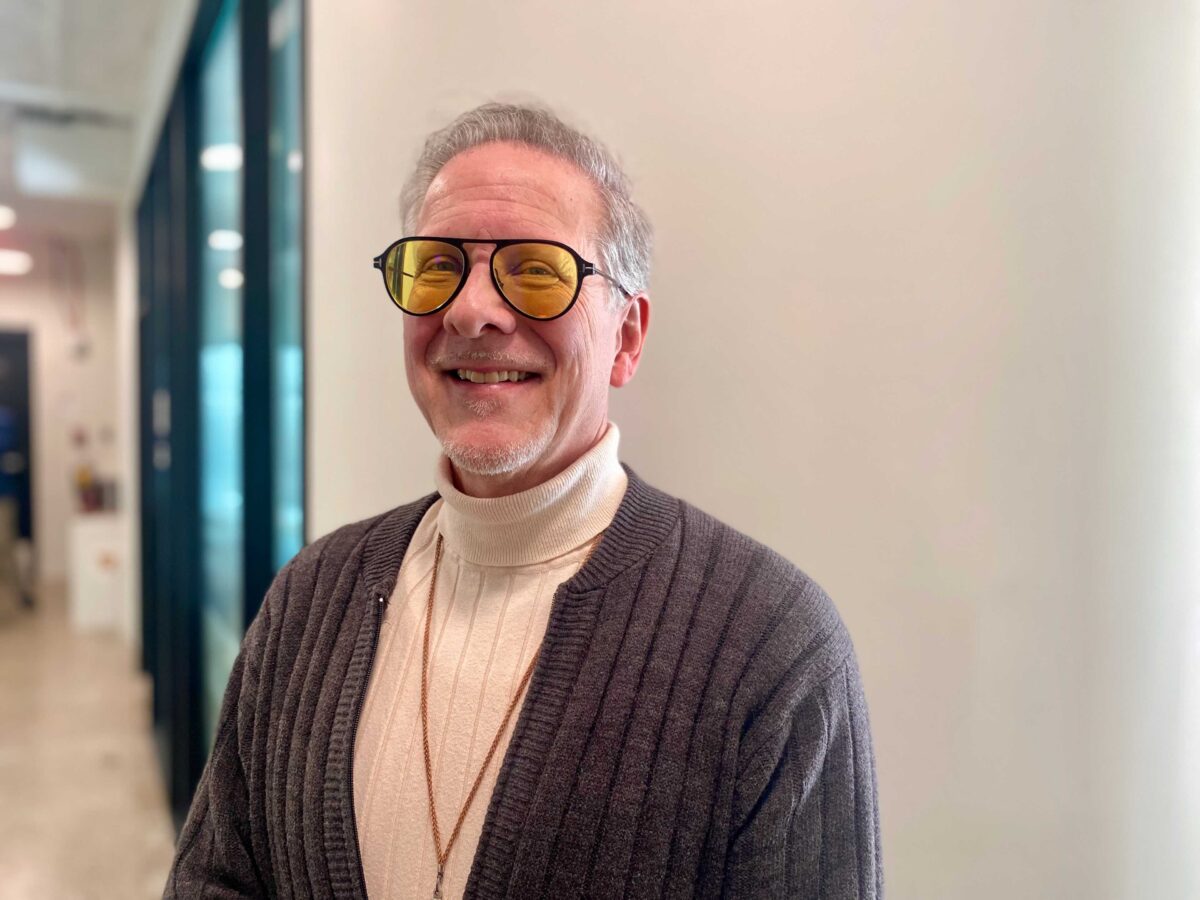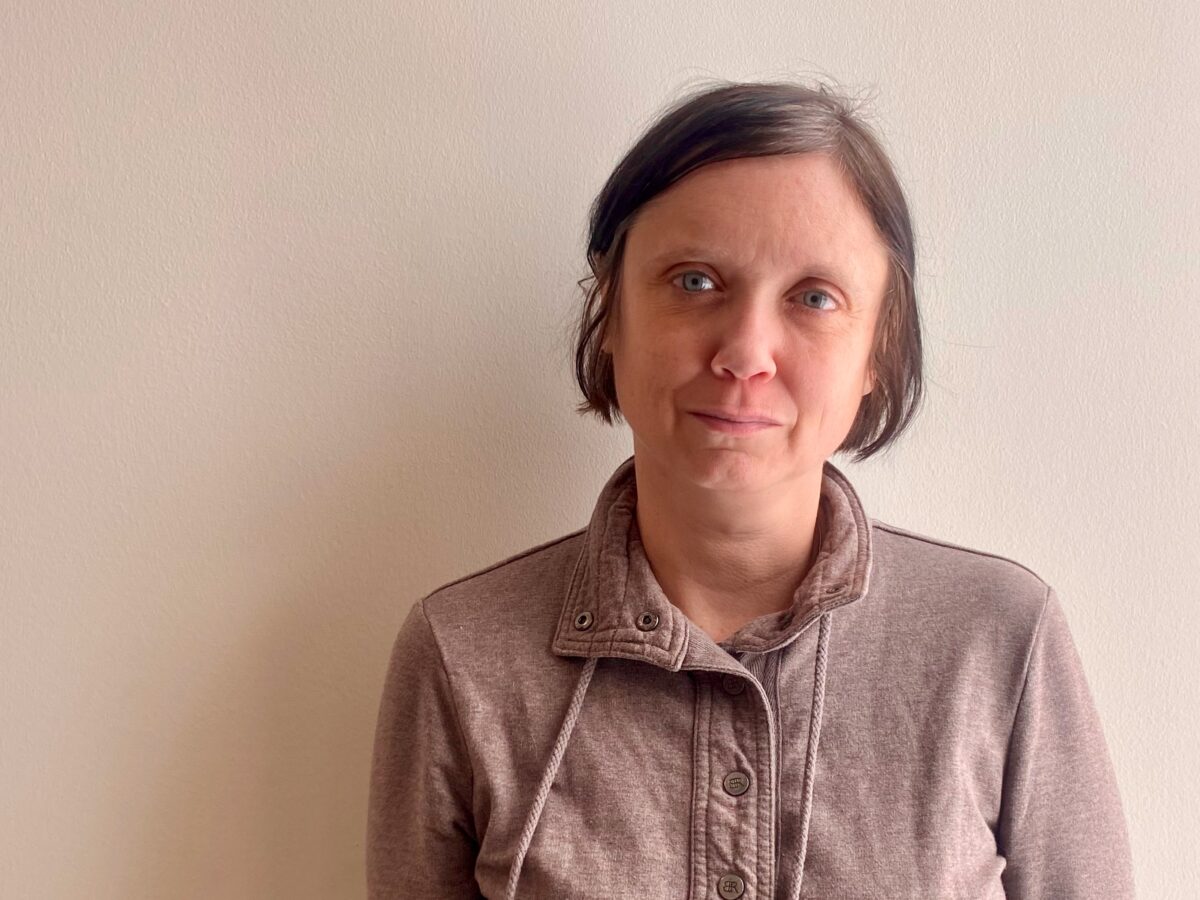Overview:
-Sonja Stuckey reignites her passion for writing after decades in early childhood education.
-Her mission now is to leverage her writing to champion truth and advocate for underserved communities.
-She also envisions opening a coffee house to foster community education, provide access to information, and encourage meaningful conversations.
This story is published as part of Planet Detroit’s 2025 Spring Neighborhood Reporting Lab, supported by The Kresge Foundation, to train community-based writers in profile writing. This year’s participants will focus on highlighting grassroots leaders driving positive change in Metro Detroit.
Sonja Stuckey was a budding journalist at Central High School, but fate had other plans. Now in her 60s, Sonja has returned to her love of writing. A lifetime of experiences has fueled her mission to use writing to stand up for truth.
Can you tell me about how your interest in writing and journalism developed?
When I was a kid, it was books, books, books — I always loved to read. I started writing poetry under the direction of my fifth grade teacher. I fell in love with Langston Hughes, and from that point, I just started writing. I always excelled in my English and history classes — anything that had to do with writing.
In high school, I became a Soul Teen reporter. This was part of Donnie Simpson’s radio program on WJLB where students would get a minute to report from their high school. I was a student at Central High School where I also worked on the school paper as the assistant editor. I just loved it. I was on another program called “Teen Talk,” a TV program on channel 62 in Detroit, which was the first Black TV station. I would interview people from my high school, and I was pretty good at it! I was about 17 then.
Writing and journalism were things that I was always interested in, so I went to school for broadcast journalism at Wayne State University, but I dropped out because I got married and started having children.
And then for many years you worked in early childhood education. Can you tell me about that work?
I actually got into early childhood by accident. As I said, I married young and started having children. I had twins and two kids that were like stairsteps; and because of childcare issues I went into early childhood education so that I could take my children to school with me. My first love was always journalism and writing. But I took an alternate career because of my parental obligations. That spanned 28 years.
Did your work in early childhood give you any particular insights into the community?
It really did because it helped me see the importance of families having adequate resources. Because of hardships and things that I went through — I ended up being a single parent because my husband died — I needed the community to become my support system. I’ve always been a community advocate because resources in Detroit are not easy to come by. I got involved in the community because of desperate life situations, and now I really do understand the importance of having a thriving community.
Is there a specific insight that you can share?
The biggest insight is that there is a great disparity between a two-income household and a one-income household. When you are a one-income household, there’s not a lot out there to subsidize or help. Childcare is a big expense, and so is housing. I had to struggle with housing, and rent was not as high then as it is now. Single women — if they don’t create community, if they don’t have extended family — don’t have anyone to lean on. In the Black community, we call this the village. We need the village. We need to teach people how to be able to live together, how to help one another, and support one another. That is so important and is missing now.
I really feel bad when I see these young women struggling as they do.
So your life took a detour, and now you’re coming back around to journalism?
I came back when Detroit Documenters gave me a second chance. I went back to school at age 63 and got a master’s in professional writing. Now I’m using that, and it’s going to be my till-I-die career.
You are a Cody Rouge Resident. What are some unique things that you can share about that community?
I have lived there for 21 years, so I have a lot of history there. I used to rent a house in Cody Rouge, and the neighborhood was so family-oriented. Because of some bad things that happened, we had to move someplace that I didn’t really like; but I always promised my kids that we would move back. It took me a long time, but we did move back, and that’s where I live now. What I like about the neighborhood is that there’s a sense of camaraderie. There are a lot of resources in the area. We have access to greenery with Rouge Park all around us. I really like it.
As you look into your future with journalism, what do you hope to do with your writing?
If I had started when I was younger, I would have loved to have been an investigative reporter. I like to speak truth to power. I want to do journalism that gives people access to information that they can use and access to truth, especially with public officials. I want to show how to fact-check statements and bring understanding to what people hear so that they can pull the truth out of it.
What else is important for people to know about you?
Well, there’s another side of me — I’m a social justice warrior. I am always advocating for the underserved. And then my other passion is that I write poetry and I have a desire to have a coffee house. I love the whole idea of a place where people can get community education, where they can get information, where people can come and bring their laptops and sit and drink coffee and have meaningful conversations.
MORE FROM THE NEIGHBORHOOD REPORTING LAB
Perry Sylvester is a Detroit advocate. Here’s how he came to love the Motor City.
Perry Sylvester, a Utica native, champions Detroit’s future through community organizations, advocating for a city that residents can proudly call home.
This Detroiter self-publishes fiction. Shannon Mackie shares ‘catalyst’ behind completion of first book.
Shannon Mackie, a Detroit-based freelance writer and storyteller, has written several novels and short stories across genres. Meet Planet Detroit’s 2025 Neighborhood Reporters in this Q&A series, written by Neighborhood Reporters.
Community voices take center stage in Planet Detroit’s 2025 reporting lab
Planet Detroit’s 2025 Spring Neighborhood Reporting Lab, backed by The Kresge Foundation, will train community-based writers to profile grassroots leaders fostering change in Metro Detroit.




